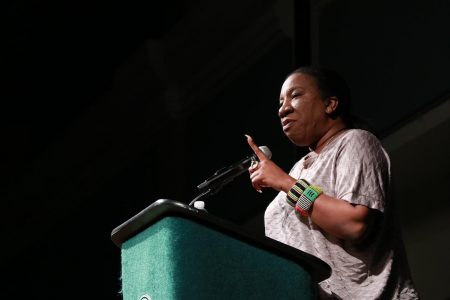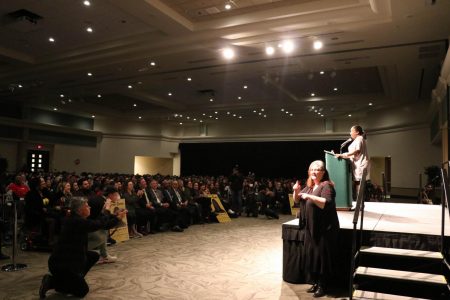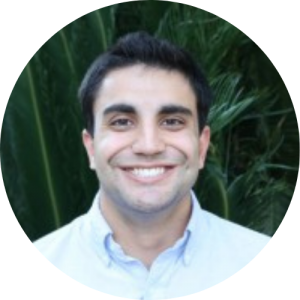#MeToo founder Tarana Burke gives lecture at Sac State
Sac State was the last stop of her CSU tour
Kelly Kiernan and Deondre Pasquini
February 8, 2019
Social justice activist Tarana Burke concluded her California State University speaking tour at Sacramento State Thursday, encouraging and aiming to empower students to heal as a community and sharing the roots of her role in the #MeToo movement.
More than 1,000 students, alumni and faculty filled the University Union Ballroom at 7:30 p.m. to listen to Burke speak.
RELATED: #MeToo founder to speak at Sac State
“I know that [the lecture] is at a university, but I saw it was publicized in the community which I really liked, because bringing in the community is important and I am very excited,” said Georgina Rossel, coordinator at College of Education at Sac State.
“To have such a prominent figure of a really powerful figure come and speak at the school, it is a very important time for us students to take a part of,” anthropology major Kehaulani Prodigalidad said.
“I have a lot of friends, me included, who have been sexually assaulted and [to] have the #MeToo movement be there and [say] ‘we hear you, also we are with you’ is very personal and touching to me,” Prodigalidad said.
RELATED: Sexual assault and Sac State: a special package
Burke began her lecture by giving background of her origins living in the Bronx, New York as a young girl with her grandpa and mother. Burke said her mother influenced her with black feminist literature while her grandfather shared the root of black power and the civil rights movement.
Burke continued, describing the literature that influenced her life including Maya Angelou’s “I Know Why the Caged Bird Sings” and “Before the Mayflower” by Lerone Bennett. She said these books introduced her to the injustices of sexual violences and racism.

Tarana Burke, activist and founder of the #MeToo Movement, shares her story to over 1,000 people in the University Ballroom Thursday night. She talked about abuse, speaking out and her experiences.
Her hard work and dedication in activism began with her community engagement in cases pertaining to injustices made against black youth.
“All I kept thinking was, this happened to me too,” Burke said.
Burke empowers survivors by taking the movement back and breaking misconceptions. “It’s not about taking powerful men down, it’s not about gender war, it’s not even about gender. It’s about survivors.” #metoo @TheStateHornet
— Ruby Pineda (@latinaonfiree) February 8, 2019
She said this encouraged her to start the Just BE Inc. organization in 2006 in Alabama, which, according to their website, focuses on developing girls of all shades, shapes and sizes into women with a strong sense of self-worth, an ability to think independently and progressively and a desire to make a positive contribution to their community.
Burke spoke about how she served young girls of color and empowered them to know their worth through Just BE Inc as an “organizer, activist and community momma.”
Burke realized that there was a need for support and services for women. She searched for a way to provide women with a safe space to share their stories.
Prior to the event, Madison Lee, a second-year recreation, parks and tourism administration major said she expected it to be very intense and moving.
“She’s the founder of this amazing, incredible, powerful movement,” Lee said. “That, in itself, is very cool.”
The lecture came to an end as Burke described the need for community healing, encouraging students to view her as a reminder for the work that she says still needs to be done.

Tarana Burke, activist and founder of the #MeToo Movement, speaks to over 1,000 people in the University Ballroom Thursday night. In her lecture she talked about where she is from and why she started the movement.
“Let’s heal together. You need to demand protection in your community,” she said to the audience.
Burke also encouraged audience members to hold institutions — like their schools — accountable, and should tailor their healing to the community.
The event concluded with a 15-minute Q&A, giving the audience an opportunity to ask Burke questions.
“I thought she was really inspirational,” Rosa Camilo, a third-year child development major said. “Especially because I am Hispanic, so I can relate with her. I can feel this oppression against us sometimes.”
“Seeing people like her, who are helping people like us being able to express what has happened to us is very motivational and inspirational. I hope to be like her one day,” Camilo said.
Burke left the audience with her two most iconic words; “Me too.”
Additional reporting by Kelly Kiernan and Deondre Pasquini































































































































